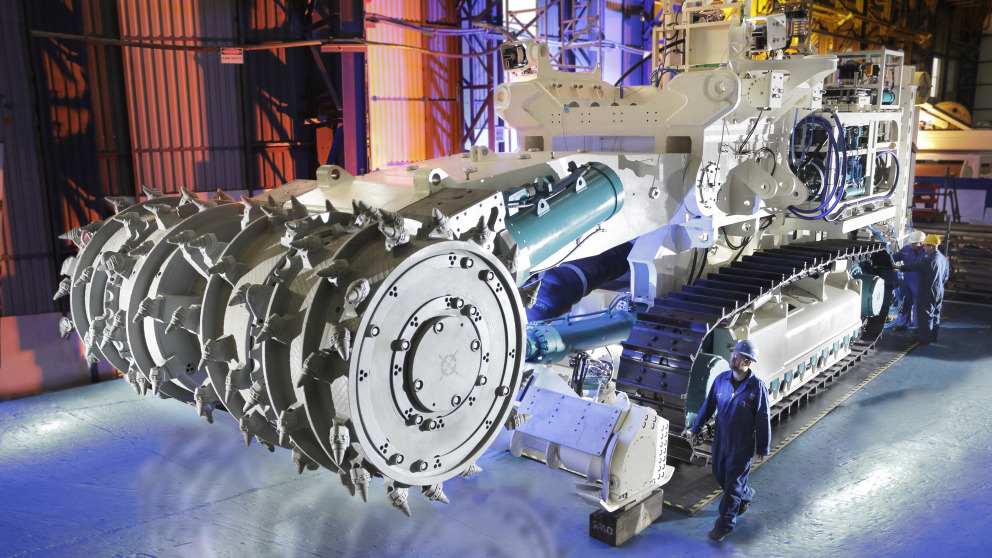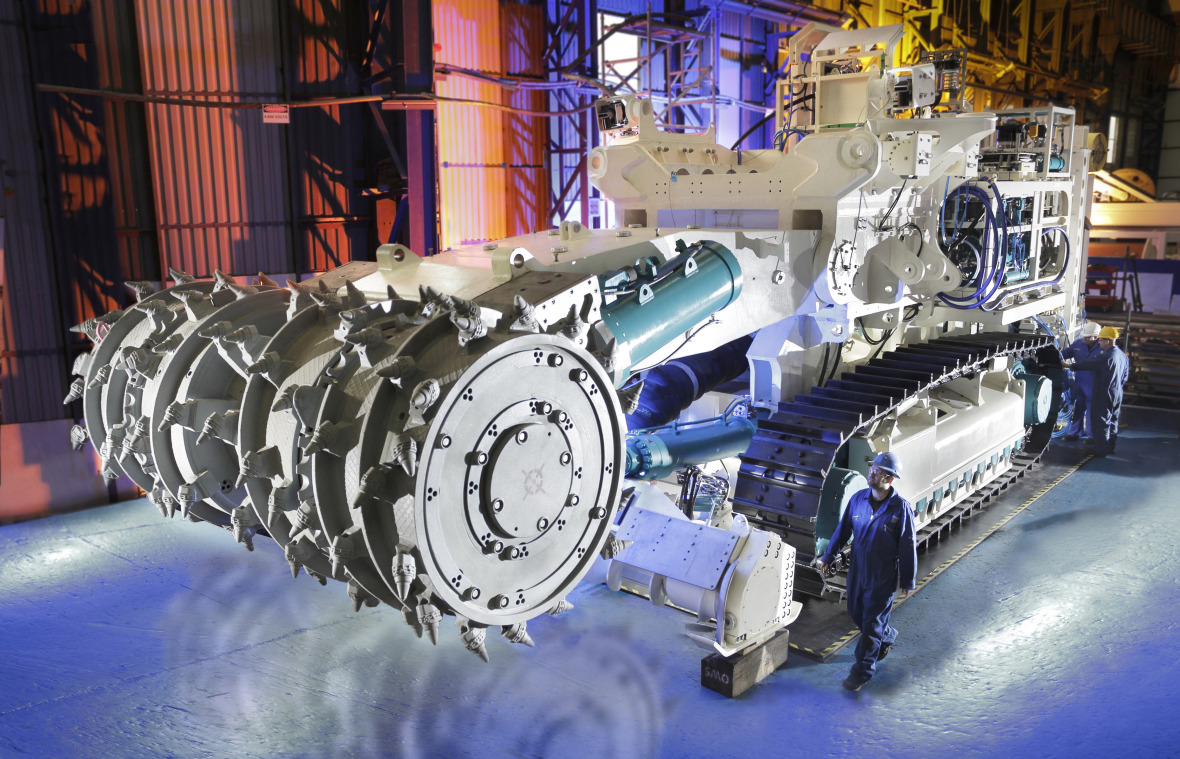Environmentally Friendly, Lucrative, and Beneficial to Society? Experts Discuss Deep-sea Mining
20.04.2015
Raw Materials from the Ocean

Since they were first discovered at the end of the nineteenth century, manganese nodules from the deep sea have attracted great interest at various times. Up to 20 cm in diameter, these nodules contain magnesium, iron, silicone, aluminium, nickel, copper and cobalt in addition to the trace element manganese. Since the 1970s there have been many business- and government-sponsored attempts to develop procedures for mining manganese nodules and other deep-sea resources such as ore slurries. But none of them has been successful. Apart from the technical challenge, many unanswered questions remain: what degree of environmental harm is acceptable? Who should be allowed to mine these resources? And to whom should the profits go? At a recent workshop on “Deep-Sea Mining: an Uncertain Future?” organised by the IASS and GEOMAR - Helmholtz Centre for Ocean Research Kiel, experts addressed vexing unresolved questions about deep-sea mining.

In his introduction to the workshop, IASS Executive Director Klaus Töpfer stressed that deep-sea mining should not be viewed in isolation: “We also need to consider alternatives like the circular economy and more efficient utilisation of resources.” Töpfer warned that the kind of mistakes made in the regulation of air pollutants should not be repeated. The short-lived drop in air pollution in the 1970s was simply the result of taller chimneys dispersing emissions over a larger area; filter technologies were only introduced later. “In the case of deep-sea mining, we should leapfrog the high chimney, the end of the pipe, to more sustainable options”, urged Töpfer.
How can present and future generations benefit from deep-sea mining?
Despite growing interest in deep-sea mining, there is still little understanding of the potential impacts of these activities on the environment, society, and the economy. According to the oceanographer John Jamieson from GEOMAR, “Discussion amongst experts from a wide range of backgrounds, in a forum such as this meeting, and based on a foundation of sound scientific data and information, is necessary for informed decision-making on the sustainable development and regulation of this future activity.” All the participants agreed that environmental harm was inevitable in the exploitation of deep-sea resources. Side effects of extraction, such as the sediment plumes that result from mining and lifting, should be kept to an absolute minimum, so organisms that live on the ocean floor (e.g. corals, sponges) are not buried. “This is one of the greatest technological challenges and could significantly reduce the footprint of the impacted areas”, explained Phil Weaver from Seascape Consultants, a consultancy firm leading the EU MIDAS project on the possible environmental effects of deep-sea mining.
We need comprehensive regulation of deep-sea mining. But this is easier said than done, because the international ocean floor is part of the “common heritage of mankind”. That means that the resources there belong to all nations, not just those that get to them first. “The common heritage principle requires us to ensure that seabed mining develops in an equitable, rational and ecologically sound way that benefits both present and future generations”, underlined Kristina Gjerde from the International Union for Conservation of Nature (IUCN). “To effectively implement this principle, we will need to firstly accelerate our scientific understanding so we can protect the marine environment and not lose vital biological diversity and ecosystem services; secondly rethink how the International Seabed Authority allocates access to mineral rights to ensure a proper balance of opportunities; and thirdly develop an effective system of monitoring, control and compliance so that any authorised mining proceeds in a safe and cautious manner.” Other participants also stressed the necessity of environmental targets, indicators and monitoring of the defined measures.
But apart from environmental and regulatory matters, the question of the profitability of deep-sea mining is also unclear. Some participants asserted that such mining is not viable, given the high investment required and weak metal prices. Others predicted that deep-sea mining will be an important sector in about 20 years time. But they, too, advocated slow-paced development in the light of countless uncertainties. Experiences from land-based mining and petroleum development suggest that an influx of income into a state’s economy can be a very mixed blessing, particularly for small and developing states. They can face an array of institutional, social, environmental, economic, and regulatory difficulties, many of which (metaphorically like a ‘curse’) may be unexpected, or at first glance seem unrelated to the resources.
IASS to publish briefings on deep-sea mining for journalists and politicians
The workshop aimed to encourage a better understanding of the broader issues underlying questions of the sustainability of deep-sea mining. Jeff Ardron, who conducts research on the governance of deep-sea mining at the IASS, was pleased with the outcome of two days of intensive discussions: “I think we all agreed that this issue will not go away, and that now we have a real opportunity to set it up with far-sighted policies, before it begins. One thing that really hit home was that these sorts of discussions concerning its sustainability were not happening anywhere else. We were The Discussion! The International Seabed Authority is so busy developing regulations and dealing with license applications, that it doesn’t really have the time to sit back and ask if this is a good idea or not. Some Pacific Island States have had public consultations, which is a very good thing, but not always were the bigger questions, like an overall economic strategy, discussed.”
When dealing with minutiae, we mustn’t forget more fundamental questions, including the question of indicators to measure the success or failure of deep-sea mining or the question of the benefits or harms it might bring to our economies, societies and the environment.
To keep journalists and politicians informed about this issue, the IASS will publish briefings on various aspects of deep-sea mining in the coming months and integrate them into relevant international processes.
For more information, see:
- Gold at the Bottom of the Sea: Ours for the Taking? – a post by Jeff Ardron for the IASS blog
20.04.2015